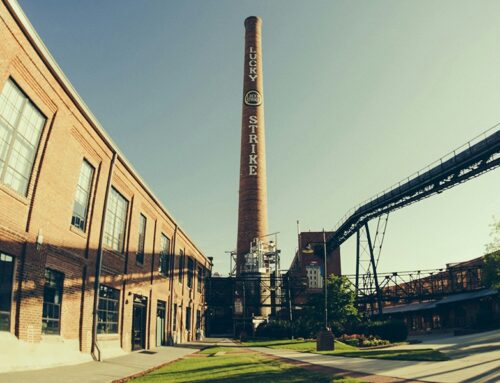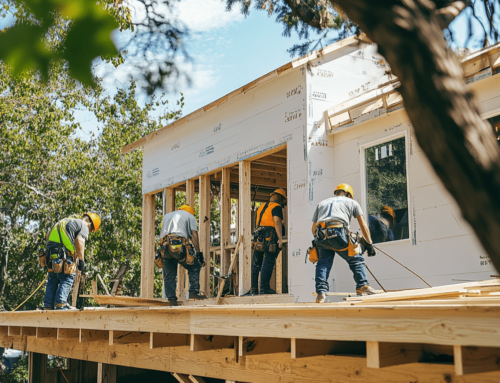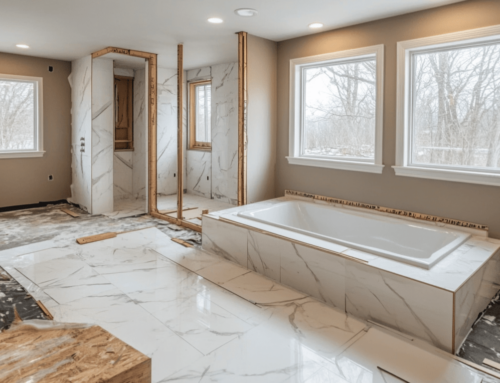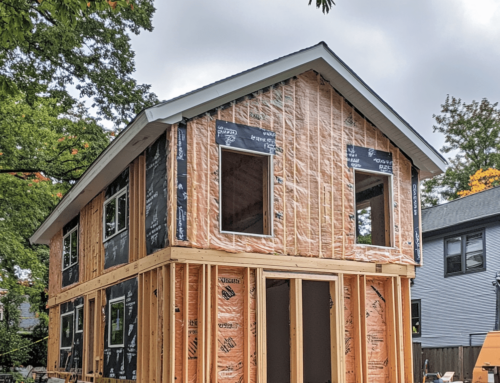The average cost of building a new home in North Carolina in 2025 is $141 per square foot, making it one of the least expensive states in the nation for new construction at the state level. However, new construction costs anywhere depend on many variables, with location just one of them.
We’ve put together this guide to new construction costs in North Carolina to help you get a sense for what you might pay to build a home. You’ll learn how North Carolina’s costs compare to other states, as well as what factors contribute to those costs.
How Much Does It Cost To Build a New House in North Carolina?
It costs $297,062 to build a new 2,100 square foot house in North Carolina on average in 2025, according to recent data from Today’s Homeowner. That’s based on the state average cost of $141 per square foot.
It’s important to understand, though, that new construction costs can vary widely between different parts of the state. North Carolina is home to low cost of living (LCOL) areas, high cost of living (HCOL) areas, and everything in between. The economic profile of different areas plays a significant role in the cost of building new homes there.
New Construction Costs By State
North Carolina ranks as the fifth-cheapest state for new construction, according to Today’s Homeowner. The data show that the average cost in North Carolina is 10.8% cheaper than the national average.
You can use the map below to see the average cost of new construction per square foot by state.
Cheapest States for New Construction
We also used the same data set to rank each state by its average cost of new construction. In 2025, Mississippi ranks as the cheapest state for building a new home and Hawaii ranks as the most expensive.
You’ll find the full ranked list in the table below, along with the average cost per square foot for each one. We’ve also included the extrapolated cost to build a 2,000-square foot home based on those averages for another point of comparison.
| Rank | State | Avg. Price per Square Foot | Avg. Total Price |
| 1 | Mississippi | $137 | $274,000 |
| 2 | Arkansas | $137 | $274,000 |
| 3 | Alabama | $139 | $278,000 |
| 4 | Louisiana | $141 | $282,000 |
| 5 | North Carolina | $141 | $282,000 |
| 6 | Florida | $142 | $284,000 |
| 7 | Oklahoma | $143 | $286,000 |
| 8 | South Carolina | $143 | $286,000 |
| 9 | South Dakota | $144 | $288,000 |
| 10 | Tennessee | $144 | $288,000 |
| 11 | West Virginia | $145 | $290,000 |
| 12 | Georgia | $145 | $290,000 |
| 13 | Kentucky | $147 | $294,000 |
| 14 | Texas | $147 | $294,000 |
| 15 | Virginia | $148 | $296,000 |
| 16 | Kansas | $149 | $298,000 |
| 17 | New Mexico | $150 | $300,000 |
| 18 | Arizona | $151 | $302,000 |
| 19 | Vermont | $154 | $308,000 |
| 20 | Iowa | $155 | $310,000 |
| 21 | Michigan | $155 | $310,000 |
| 22 | Idaho | $156 | $312,000 |
| 23 | Nevada | $156 | $312,000 |
| 24 | Delaware | $157 | $314,000 |
| 25 | Wyoming | $157 | $314,000 |
| 26 | Indiana | $157 | $314,000 |
| 27 | Colorado | $157 | $314,000 |
| 28 | Nebraska | $158 | $316,000 |
| 29 | Ohio | $159 | $318,000 |
| 30 | Montana | $159 | $318,000 |
| 31 | Wisconsin | $160 | $320,000 |
| 32 | Maryland | $161 | $322,000 |
| 33 | Utah | $161 | $322,000 |
| 34 | Oregon | $161 | $322,000 |
| 35 | Pennsylvania | $162 | $324,000 |
| 36 | North Dakota | $162 | $324,000 |
| 37 | Missouri | $163 | $326,000 |
| 38 | Maine | $165 | $330,000 |
| 39 | Alaska | $166 | $332,000 |
| 40 | Minnesota | $168 | $336,000 |
| 41 | New Hampshire | $172 | $344,000 |
| 42 | Washington | $173 | $346,000 |
| 43 | California | $173 | $346,000 |
| 44 | Connecticut | $175 | $350,000 |
| 45 | New York | $177 | $354,000 |
| 46 | Rhode Island | $177 | $354,000 |
| 47 | Illinois | $181 | $362,000 |
| 48 | New Jersey | $184 | $368,000 |
| 49 | Massachusetts | $192 | $384,000 |
| 50 | Hawaii | $205 | $410,000 |
New Construction Cost Factors
Location is just one factor that influences the cost of building a new home. Construction is a complex job, with many variables that comprise building costs.
Building Materials
Like any commodity, the materials used to build a home fluctuate over time. Prices for things like lumber, wiring, concrete, bricks, plumbing, and other building materials are a major component of the cost of a new house. When the cost of these materials goes up, so does the total cost of construction.
New Home Size
The size of a home is obviously a major factor in the price of building it. As construction is priced per square foot, adding more square feet to a house will make it more expensive.
In some cases, the cost per square foot may go down as the footprint of a home increases. However, the cost of the additional space means that even if the unit price drops, a larger house will still cost more than a smaller one.
Construction Labor Rates
Building a new home requires a large team of workers. Your contractor will hire carpenters, roofers, plumbers, electricians, and other professionals to get the job done. Their salaries account for a large portion of the building cost.
Labor rates vary over time. They are also subject to local economies, meaning labor is likely to cost more in HCOLs than in LCOLs. That means you can expect to pay more for labor in metropolitan areas of North Carolina like the Triangle than in more rural parts of the state.
Building Site Specifications
The lot where you build your home also affects the cost of building it. A flat lot with plenty of access for trucks and equipment makes it easy and efficient for builders to do the work they need. Lots with varying terrain, steep slopes, or limited access can increase the difficulty of constructing a home and the time it takes to complete it. This adds cost to the final bill.
Exterior Work
New homes also require work on the outside, such as building a driveway or landscaping. Just like the interior of the home, there is a huge range of what you can do and how much it will cost. Adding landscaping features, using premium materials for driveways, and other outside work on the property will increase the cost of new construction.
Utilities
The utility infrastructure of a new home is also part of the construction cost. A new home will require electrical, plumbing, and HVAC work. The larger the home and the more complex this infrastructure is, the more it is likely to cost. You’ll also have some choice in the quality of materials used in the home, with premium materials costing more.
Utilities in the home will also need to be connected to the outside. The electrical system will need to connect to the local grid, and the plumbing will need to connect to either local water and sewer lines or to well and septic systems. These costs vary based on the amount of materials and work it takes to make the connections.
Property Cost
While it isn’t technically part of the new construction itself, the lot where you build your home is a significant part of its cost. Even if you already own the lot where you plan to build, you should still consider its value as part of the overall cost.
Is It Cheaper To Build New or Buy a Home?
It can be cheaper in some cases to build a new home instead of buying it. However, this depends on many variables and is better thought of at a one-to-one comparison level. There is simply no clear-cut, widely-applicable answer.
If you’re weighing the decision between building and buying, we suggest finding homes for sale in the area that are a similar size and have similar features to the house you want to build. Compare those prices to general estimates based on the square footage of your desired build and the land value where you want to build it.
Building a New Home in North Carolina Can Be a Cost-Effective Option
Depending on your needs and where you want to build, constructing a new home in North Carolina can be an economically-viable alternative to buying an existing home. But even when it is more expensive, there are other advantages to building your own home.
When you do, you have the chance to design your home the way you want, and choose all of the fixtures and finishing work yourself. You’ll also have a brand new home, as opposed to one that may be years or even decades old.
Most of all, when you build a new house, it will be completely your own. For many people, that’s worth quite a lot.





